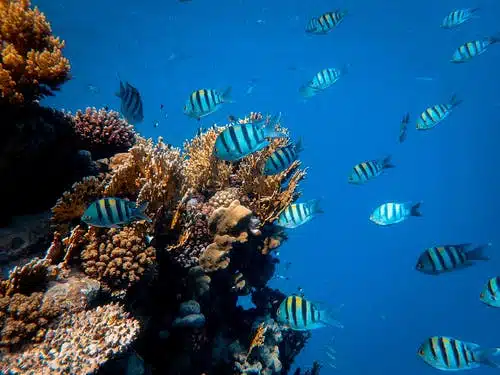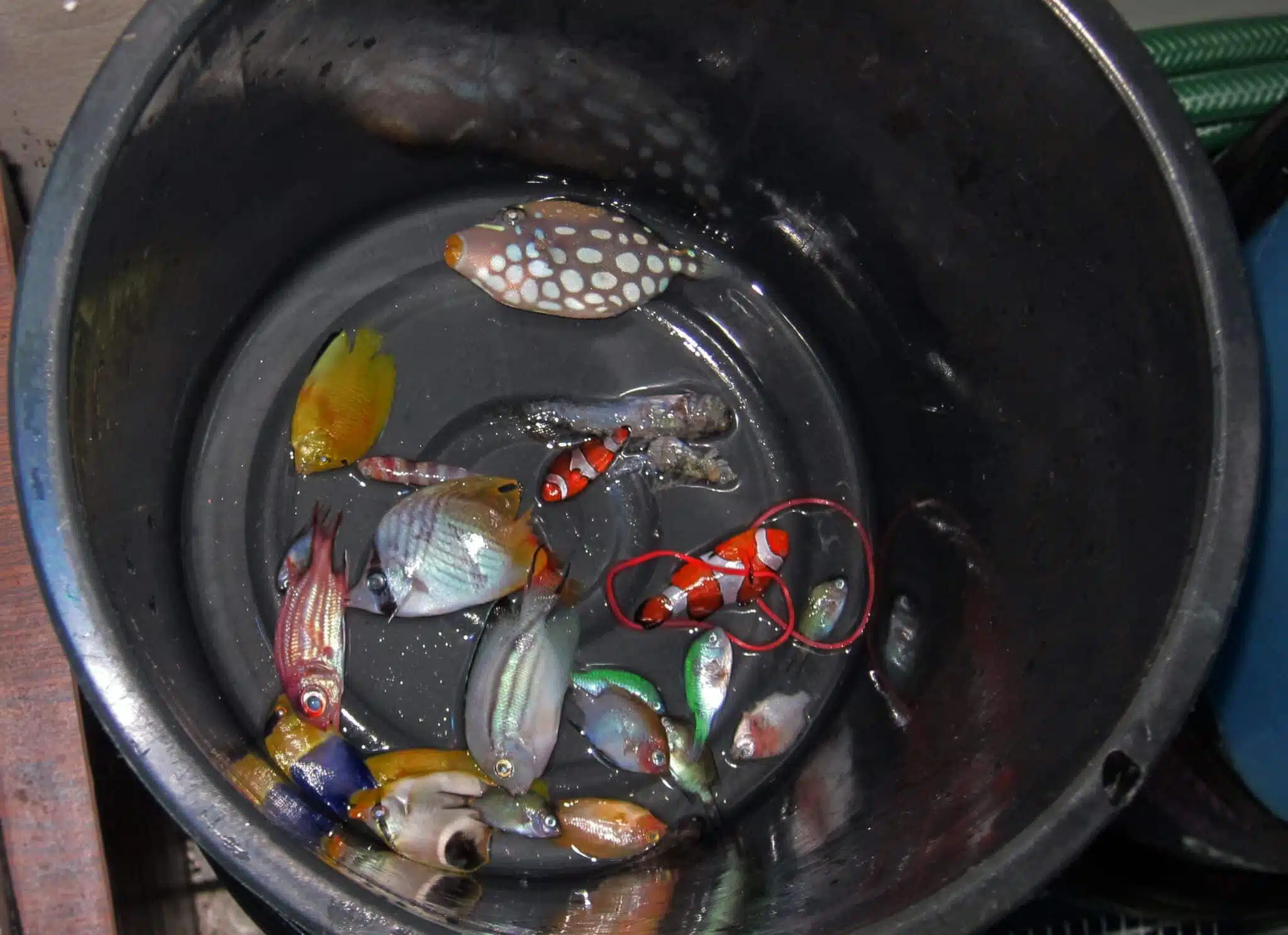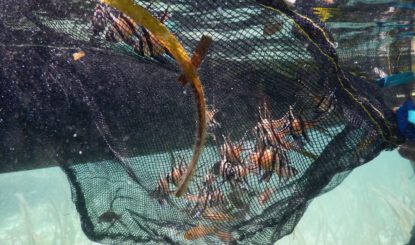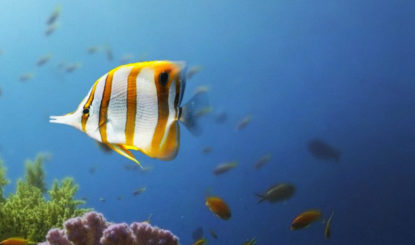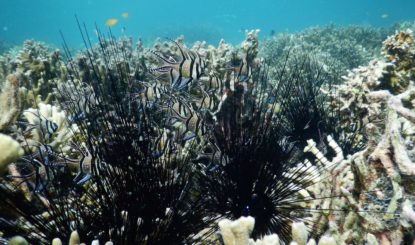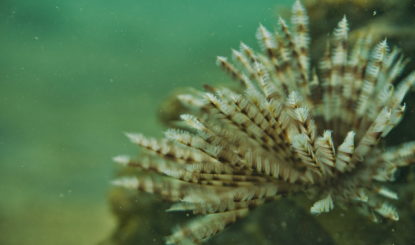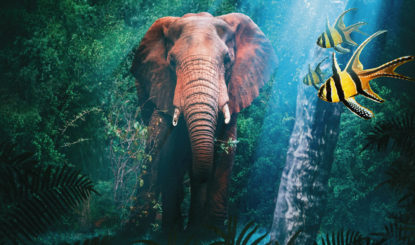Marine Conservation
Oceans and their inhabitants need our help!
The issue
Biodiversity in our oceans is at risk. The coral reefs in particular are under extreme threat: Globally, almost one third has already been destroyed. As UN General Secretary António Guterres said in his address to open the United Nations’ Ocean Conference in 2017: “The situation is critical.”
There are several reasons for this critical situation:
- Climate change is causing corals to die. Oceans play a key role in regulating the climate. Our seas and oceans are warming up, which is killing off corals. They also absorb one third of CO2 greenhouse gas emissions found in the atmosphere. If the air’s carbon dioxide level increases, oceans also absorb larger amounts of the gas in order to restore balance. The CO2 dissolves in the water, producing carbonic acid, and as a result, the pH level of the water falls: the water becomes more acidic. Sensitive calcareous creatures such as corals, calcareous algae and shellfish react to this and die.
- Pollution in our oceans threatens marine life and their habitats: Nine million tonnes of plastic waste enter our oceans every year. In addition, the thousands of tonnes of oil and oil-based fuels such as fertilizers, pesticides and chemicals put our seas and oceans under strain.
- Deep-sea fishing is not regulated properly. The growing global appetite for seafood has lead us to plunder the oceans and disrupt ecosystems. Overfishing poses a huge threat to the health of our seas and the survival of its inhabitants.
- The aquarium industry and the zoo industry raid coral reefs: Almost all species of corals and coral fish traded internationally come from the wild. Up to 80% of the animals die during capture, handling and transport ‒ before they even reach an aquarium.
- Trade in endangered animals and plants continues to be permitted: Despite the Convention on International Trade in Endangered Species of Wild Fauna and Flora (CITES), the uncontrolled trade of many animals still exists ‒ including many marine species ‒ even though they are at risk of extinction.
Donation form
Our project
Fondation Franz Weber (FFW) is committed to improving the disastrous situation of our oceans by means of various projects:
FFW is fighting back against our oceans being plundered by the aquarium industry. A sad, bleak, short life in an aquarium awaits ornamental fish, corals and other marine animals – that is, if they even survive the punishing journey in the first place. In 2019, FFW successfully opposed the construction of a new large-scale aquarium by the Zoo Basel in Switzerland. Furthermore, FFW supports efforts to oppose the planned SharkCity aquarium in Germany, which aims to exhibit sharks from all over the world.
In particular, FFW harnesses its role as official observer at CITES to achieve more rigorous scrutiny of the international ornamental fish trade, through the Convention on International Trade in Endangered Species of Wild Fauna and Flora.
In addition, FFW is working on the “Great Seaflower” campaign, supporting the efforts of six Caribbean nations to protect the animal kingdom and the ecosystem of this extraordinary natural heritage.
More infos:
- www.procoralfish.org
- Project page: Gran Seaflower
Our goals
- Protect and preserve biodiversity and the remarkable ecosystems found within our oceans
- Ensure that further endangered species of ornamental marine fish are included on the CITES Appendices
- Regulate, monitor and control the trade of ornamental marine fish for the aquarium industry
- Raise public awareness about the issues surrounding catching ornamental marine fish
- Prevent large-scale aquariums such as the Ozeanium in Basel
News
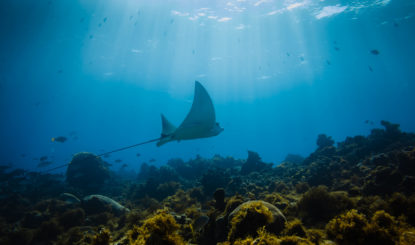
Nature protection
Gran Seaflower 2021: A Spark of Hope in The Caribbean
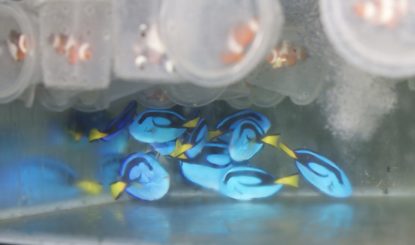
Animal protection
The unregulated trade of marine ornamental fish: How many Nemos and Dorys are imported to Europe every year?
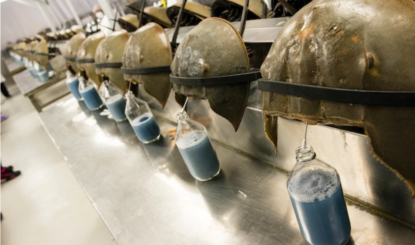
Animal protection
COVID-19: Millions of animals are paying the deadly price for human vaccines
Facts and Figures
***
